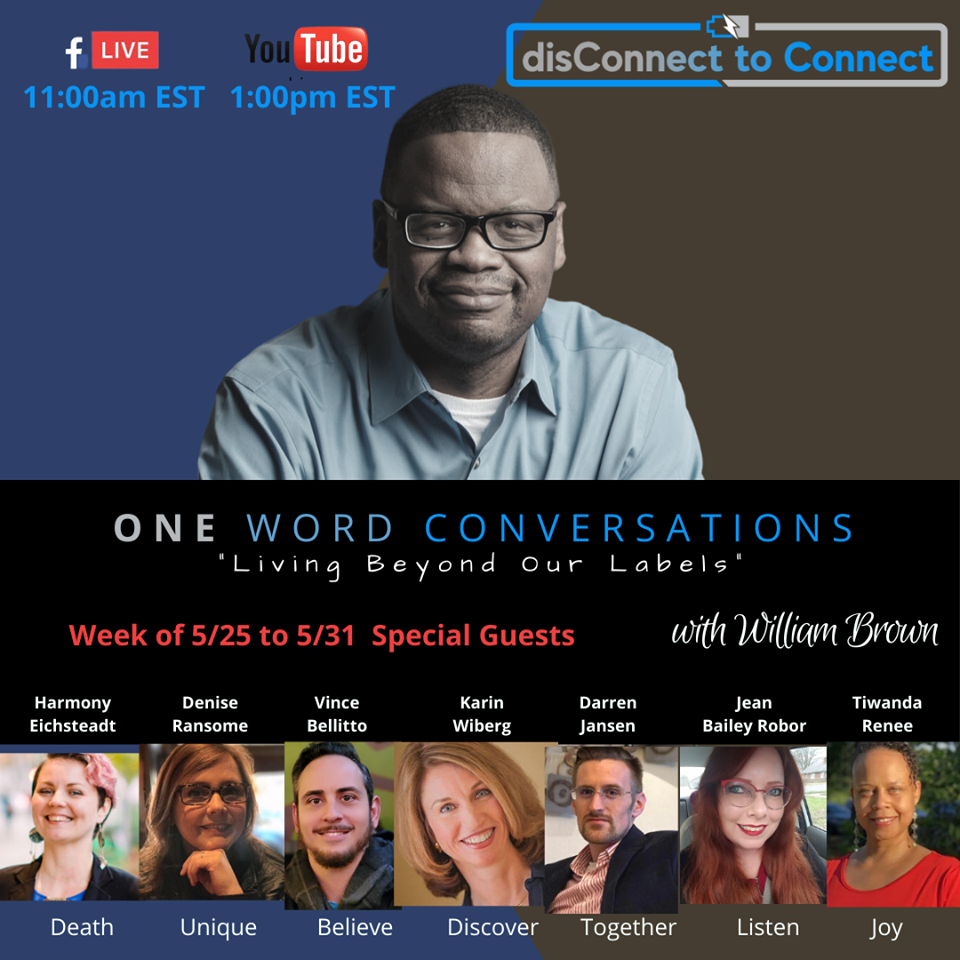My friend William Brown (iamwilliambrown.com) does a regular series on disConnect to Connect called “One Word Conversations,” in which he spends 45 minutes talking with a friend or colleague about—as you might imagine—one word. Check out the lineup below for a sampling. When I got the word “discover,” my brain leaped into action. Yes!

I had a great time talking with William in this casual, loosely structured conversation. I thought I’d post the video here for easy reference.
During the show I referenced a few concepts and mentioned a few articles that might be useful here in this writing context.
Discovery drafts
One of my first thoughts on hearing the word “discover” was discovery drafts, those first drafts needed to figure out what you are really trying to say. The idea of emergent vs. self-contained writing is one of my favorite concepts to share. When newer writers understand it, they are relieved the 1) they don’t need to know everything right away and 2) they aren’t doing it “wrong.”
Letting discovery impede progress
Ah, some of us (like William and me) love to go off wandering and see what we can find. So when is it discovery and when is it procrastination, avoidance, etc.? There is a point when all the lovely things you’ve discovered need to be integrated and applied. More on love of learning.
Shying away from discovery
William raised an interesting point: sometimes he doesn’t want to discover the unknown, especially in a personal setting, because it might be “bad.” Or scary. Like squirmy bugs under a rock. I get that same feeling sometimes.
And yet I know the things we shy away from are often the things that need to be poked and prodded. We might need to regain perspective; we might need to heal. The ugliness makes us uncomfortable—but it won’t really hurt us to sit with that discomfort. And usually we feel better once we’ve gone there and come out the other side.
Going to those scary places is one way to give your writing emotional energy.
Discovering your voice
One of the audience members asked about how you discover your own voice. Two big things: 1) shut out other voices so you can hear your own; 2) practice. Here are more tips on discovering your voice.
And here’s an article about lessons from Stephen King, who famously said words to the effect of “write with the door closed, revise with the door open.”
Having something to say
Another audience member asked what I tell someone who thinks everything has already been said.
First, we all have something to say—it may not be brand spankin’ new, but we can make it fresh by bring our own perspective and experience to it.
Second, someone out there needs the message you have at the right time and in the right form. If you don’t put your message out there, someone is missing out on what they need. For some subtle inspiration on finding your message, try this birthday reflection.
On curiosity and fun
William and I started off talking about play and discovery but spent most of our time on somewhat more serious topics. So I just want to end here with an encouragement to explore with curiosity and intention and playfulness. Have some fun. Reclaim some childlike awe at all the paths and possibilities in this world—and see what you discover.

